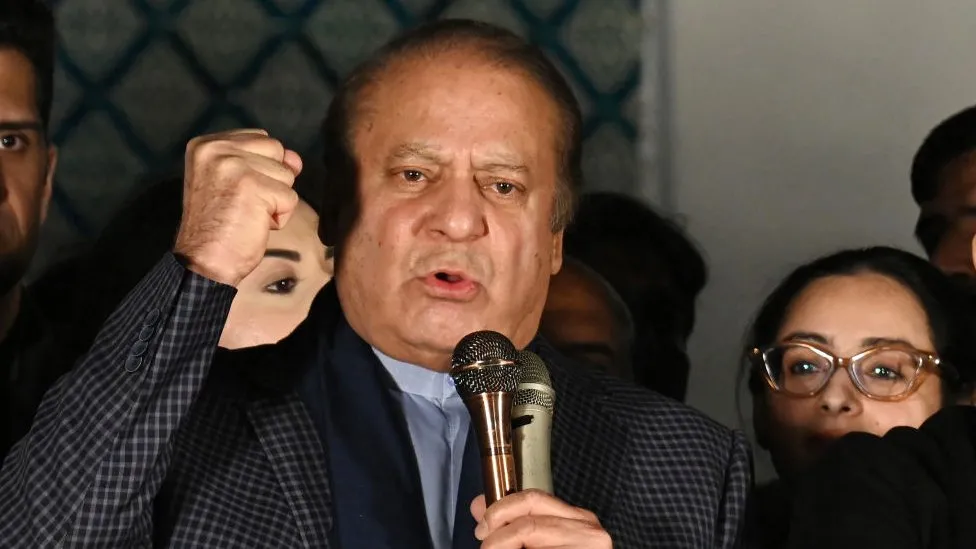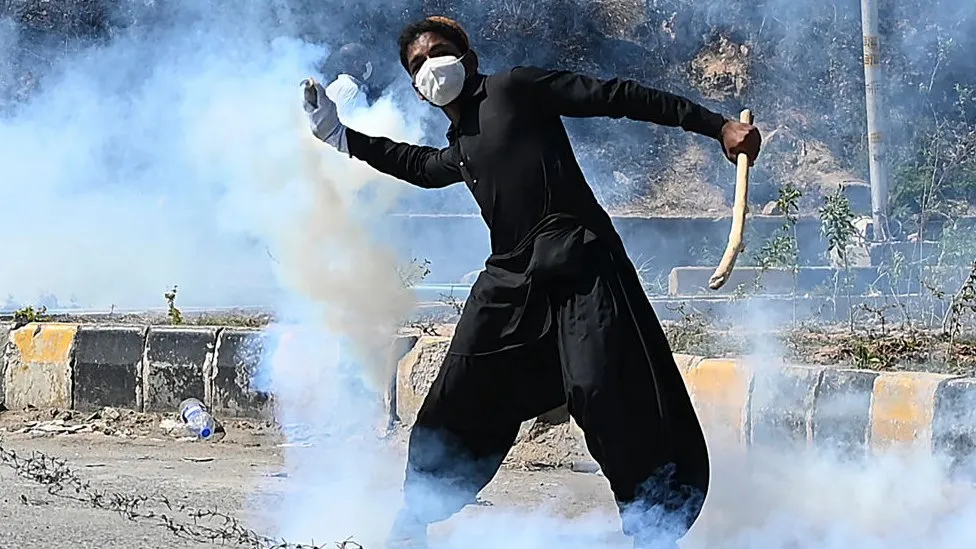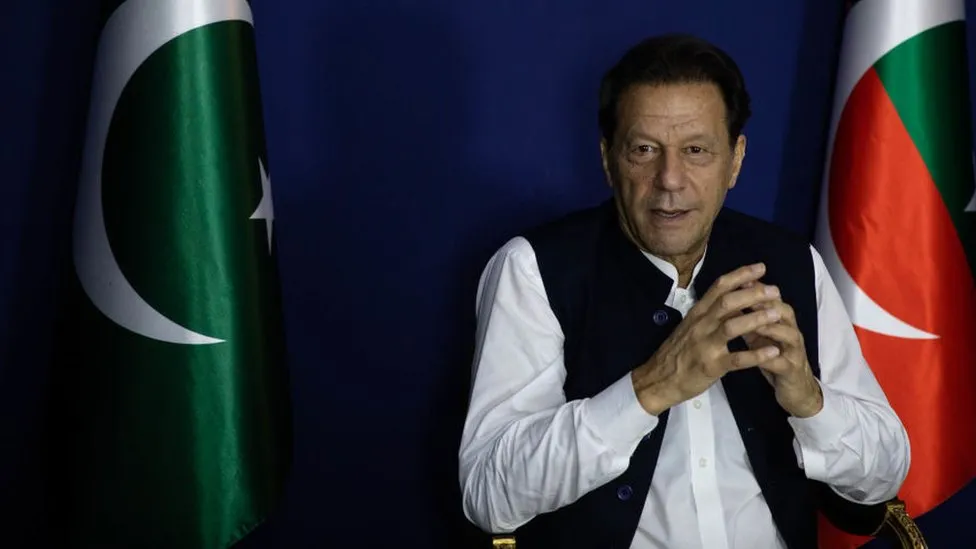-
According to writer and journalist Mohammed Hanif, Pakistan’s recent elections were meant to usher in a time of calm that was desperately required to address the nation’s severe political divisions and crushing inflation.
Rather, what they produced is a minority administration, a hesitant and unsteady alliance that appears unclear about its own purpose.
The Pakistan People’s Party (PPP), led by Bilawal Bhutto, and the Pakistan Muslim League (N), led by former prime minister Nawaz Sharif, said two weeks after the elections that they would form a government, but the PPP would not be a part of it.The leaders of both parties delivered a somber statement at midnight that resembled a shotgun wedding.
All of a sudden, Pakistan was that uncommon democracy in which the prime minister was not genuinely desired by anyone.Pakistan’s powerful military is referred to as the “establishment” in local media, and they have always maintained that civilian politicians shouldn’t be in charge of such a delicate process.
This time, they pulled out their old election playbook and employed every tactic they had previously used with success.Imran Khan, the front-runner, was jailed. He is charged with over 150 crimes and civil cases, all of which he contests.
He received sentences in three cases a week prior to the elections; in one, he was charged of hastily entering into a marriage. His party was forced to run as an independent after being refused both a cohesive program and its electoral symbol.It was often believed that the army supported former prime minister Nawaz Sharif.

Instead of running for office in their communities, many were dodging police raids. His principal rivals were released from several cases against them and allowed to run unhindered.
Social media and mobile phone services were taken down on election day, ostensibly due to security concerns, but in actuality, to make sure that supporters of Khan would have difficulty accessing polling places and identifying their candidates on the ballot.
With incredible resourcefulness, Khan’s followers created WhatsApp groups, made do with homemade applications and websites, visited polling places, and located their candidates.
AI-generated speeches were utilized by his party to deliver their imprisoned leader’s message. The jail ID number of Imran Khan was made into an election campaign slogan.
They launched an unconventional campaign and surprised everyone on election day.
His Pakistan Tehreek-e-Insaf (PTI) managed to emerge as the single largest party in the election in spite of all the allegations of manipulation against it. On election day, the Khan wave was too powerful to be contained by standard election manipulation.
The establishment failed to control a digitally sophisticated youth by employing 20th-century strategies.
The voters’ courteous yet firm reaction to the military’s tried and true tactics was, “Thank you, but no thank you. We are not as ignorant and illiterate as you think we are.” Even if you have your firearms and we can’t fight you in the streets, our signature is on the ballot. Proceed as you like with it.
Imran Khan, a seasoned agitator, chose to sit in opposition after failing to secure a simple majority in parliament and refusing to work with any other parties to create a government.
His appeal and personality have grown as a result of his ability to paint his rivals as crooked. Having spent his whole political career bashing politicians, he is averse to sharing power.
The majority of politicians in Pakistan have served time in jail or prison. However, Imran Khan seemed to have had the most enjoyment of all.
Refused any public forum to address his followers, he managed to win an election from his prison cell by sending messages through his attorneys and close relatives.
Following the collapse of his administration in May of last year, Imran Khan’s followers staged a riot and set upon army cantonments and other symbols of the armed forces’ authority and reputation. A few protesters even broke into army headquarters and set fire to the home of a senior general.After Khan was detained on suspicion of corruption, protests started.The ensuing crackdown was severe and quick.
The majority of the PTI’s top leadership was kidnapped and forced to break from Imran Khan; some denounced his political views, while others permanently left the party.

The establishment desired to make it very evident that Imran Khan and his group were out of business. As the election approached and Khan was put in jail, the party was taken over by local supporters and second-tier leadership, who played a critical role in coordinating the party’s bruising campaign for victory.
They voted to demonstrate that they would not desert their leader merely because the army demanded it, even though they were certain their leader would not be let to retake control.
When Imran Khan is not in power, he is the king of disorder, taking out his fury not just on the institution of the army but also on his political rivals.
Imran Khan asserted in his lectures that he was removed at the US’s request for following an independent foreign policy, just before he was detained and imprisoned.
Opponents of his claim that all of his policies throughout his time in office were motivated only by whims and vanity. They claim that throughout his term in office, he harassed his rivals more than he managed the nation. Khan appeared preoccupied throughout his tenure in office and made poor choices that prevented inflation from out of control.
He sounded like an opposition politician even while he was in administration, venting his rage at the media and his political rivals.He’s a seasoned provocateur.
Following his party’s defeat in the 2013 elections, he waged an intense campaign to have the results annulled and besieged Islamabad, the nation’s capital. With the support of the establishment, he succeeded in doing so. Following his party’s performance at the polls, he is feeling confident as he now leads the opposition against the establishment.

Although Imran Khan’s party has chosen to remain in opposition, he prefers to conduct politics in public at rallies and on social media rather than in the legislature. The present administration has already earned the moniker “coalition of losers” since, well, it is just a coalition of parties that Khan handily defeated in the election.
The disruption of mobile phone services clouded the election.
The opposition to Khan did not appear to be eager to create a government for two weeks following the results.
For the first time, prominent politicians were hesitant to take accountability rather than asserting their dominance.
The crushing financial problem Pakistan faces and the skyrocketing costs of food and gasoline have made life intolerable for the working classes are the reasons for the unwillingness to rule. The increasing influence of the army in all aspects of government has forced governing leaders to travel the world seeking bailouts from foreign funders.
Many have wondered if Imran Khan’s imprisonment will help him become a more responsible politician.It doesn’t seem likely.
He has succeeded being a maverick; he has no desire to change into a weaker version of himself in order to fit in with the establishment.
He is the most well-liked politician in Pakistan because to his wrath towards the established political establishment.
He wouldn’t want to give that up to lead a nation that even his defeated rivals appear hesitant to lead.
This is the ideal setting for Imran Khan to carry out his campaign, even from his prison cell as the nation’s most well-known inmate, number 804.

